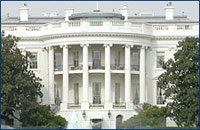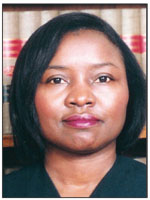Priorities for the Next President: Stay Out of the Way of Local Government
 My scholarship focuses on local government law, so you might assume that the next President would have little to do with my area of the law. Quite the contrary. In this era of shrinking government budgets and greater national debt, it is certainly conceivable that our next President will be faced with cutting spending on the federal level. It’s also plausible that Congress and the new President may make cuts in federal aid to state and local governments. I am somewhat agnostic on this issue. I have argued that decentralized decisionmaking leads to the more efficient and effective provision of goods and services, as well as policy outputs. I have also noted that much progressive policymaking occurs on the local level–more so than at the state and federal level. For these reasons, I might be inclined to encourage the new President to continue to fund local governments with block grants for various programs and services. But I also understand the need to get federal spending under control. What I am resolute on, however, is that any such cuts in funding should not be replaced with unfunded mandates for local governments from the federal government.
My scholarship focuses on local government law, so you might assume that the next President would have little to do with my area of the law. Quite the contrary. In this era of shrinking government budgets and greater national debt, it is certainly conceivable that our next President will be faced with cutting spending on the federal level. It’s also plausible that Congress and the new President may make cuts in federal aid to state and local governments. I am somewhat agnostic on this issue. I have argued that decentralized decisionmaking leads to the more efficient and effective provision of goods and services, as well as policy outputs. I have also noted that much progressive policymaking occurs on the local level–more so than at the state and federal level. For these reasons, I might be inclined to encourage the new President to continue to fund local governments with block grants for various programs and services. But I also understand the need to get federal spending under control. What I am resolute on, however, is that any such cuts in funding should not be replaced with unfunded mandates for local governments from the federal government.
Federal policymakers, including the President, seem to like to influence matters on the local level. It is one thing to do this through conditions attached to federal funding (I don’t love this approach, either, but I can accept it given that localities can choose to reject the money if they decide the conditions are unacceptable). But it is entirely another thing to attempt to dictate policy on the local level from the federal level without proper funding. Such unfunded mandates run afoul of federalism principles. Moreover, cities (and even states) face drastically different challenges where macro-level policymaking–the “one size fits all” approach–does not make much sense. Localities must have the resources and the autonomy to craft individualized solutions to their unique problems. Hopefully this will include continued aid from the federal (and state) government. But it certainly should not be impeded by unfunded mandates from the federal government. This should be the priority of the new President with regard to local government: Stay out of the way.


